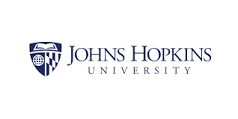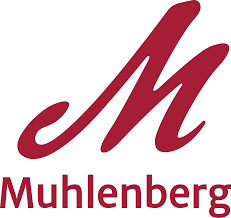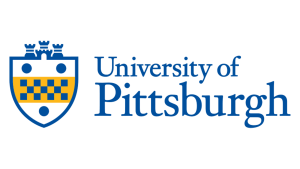Pennsylvania is one of the oldest states, number two in beginning its statehood back in 1787.
Nicknamed the Keystone state, due to its central location among the 13 colonies, Pennsylvania has been a cornerstone for education ever since the it began.
Located near New York, Ohio, Maryland and West Virginia, this gorgeous land has many natural scenes that are awe-inspiring as well as private and public education institutions to help you begin the career you have always hoped for.
One of the many educational programs in Pennsylvania that is becoming widely popular is Public Health, and we have found ten of the best schools for this program right in the great state.
A few are from out of state, but close enough that you could drive there in a day’s time if necessary.
Take a look at ten of the best schools for Public Health for Pennsylvania residents who are looking to expand their knowledge wheelhouse and help others in the end.
1Arcadia University

Located in Glenside, Pennsylvania, Arcadia University is the small private school you may have been dreaming about.
With just under 2,000 students enrolled here each year, you will have the small-town closeness that some people strive for.
Here, you can choose from about 75 different majors, including the Public Health Bachelors degree.
As a four year degree, students will learn how to create, implement, and run programs to help with healthcare and better living habits for individuals as well as communities.
You will take on general education classes like math and English, but also be fulfilled in courses that pertain to specialized science, sociology, and psychology topics.
Some of the classes that you will likely take in order to fulfill degree requirements are:
- The Science of Public Health
- Global Health Service Learning
- Sex and Society
- Biological Foundations in Public Health
Students are welcome to take on study abroad opportunities as well as other extracurriculars in your interest field.
Completing all of your classes with good grades will afford you a degree in Public Health that you can take on to hundreds of roles in healthcare such as:
- Worksite Safety Coordinator
- Employee Wellness Coordinator
- Health Media Director
- Assistant Professor
Enrollment
Arcadia University provides prospective students with an easy, accessible online application.
The first step in the two step process is to fill out the application which you can do right from your computer in about twenty minutes.
Step two requires that you submit some critical information to get the ball rolling, which will include:
- Transcripts from high school or previous education
- One letter of recommendation
- SAT or ACT scores
- Essay
- List of activities
All types of students are welcome to apply, including first year students, transfer, military, and even international students.
There are deadlines throughout the year so keep that in mind when submitting your application.
Once you have completed your application, you will hear back from the school about an admission decision within two weeks.
A deposit for enrollment is required if you choose to begin your education at Arcadia University.
Fees
Full time students at Arcadia University pay $47,590 per year to attend.
This adds up to $190,360 after four years of education.
Other yearly fees that may apply to attendants of this school are:
- Room and Board – $14,090
- Books – $1,500
- Lab fees – $100
- Parking – $100
Scholarships and financial aid are available for all students at this school.
Contact Information
- Address: 450 South Easton Rd. Glenside, PA 19038
- Phone: 215-572-2900
- Website: www.arcadia.edu
2Drexel University

Another private school in the middle of Pittsburgh is Drexel University which was founded in 1891.
This one is a little bigger with about 12,000 students enrolling each year.
Drexel University has a unique learning model, where students take part in experiential learning and research that they conduct themselves.
People from far and why come to this exclusive institution to create memories and start the path toward the career of their dreams.
There are over 80 undergraduate programs to choose from, and among those is the Public Health Bachelors degree.
You will head to the Dornsife School of Public Health, which is ranked in the top schools for Public Health in Pennsylvania, to take the majority if your classes, which are steeped in science and sociology, including courses like:
- Biostatistics
- Health and Human Rights
- Community Health
- Injury Prevention and Control
Students will learn from professors both in the classroom as well as conducting research on their own to support individual and community health issues.
Once you have completed the 120 credit hours required for graduation, you will be ready to take on the real world in Public Health roles such as:
- Food Safety Inspector
- Environmental Health Inspector
- Education Program Manager
- Alcohol Educator
Enrollment
At Drexel University, prospective students can get help every step of the way through the admissions process.
First, you will want to head to the school’s website to begin enrollment.
When you get there, you will see that there is a tab for undergraduate admissions, click on that and you can choose whether you are a first year freshman, transfer student, or international student.
Each application will take you where you need to go and you will be given the chance to input your personal information.
Along with you reapplication, it is required to submit a $65 non-refundable fee.
Also, it is necessary to submit the following information:
- Essay
- Transcripts from high school or previous education
- Letter of recommendation
- SAT or ACT scores
- Financial responsibility proof
You can mail in that information or submit it right on the website, whichever is easier for you.
Once you have completed all of the requirements for admission, you will hear back from an academic advisor within a couple of weeks.
At that time, you will be able to pick your classes, sign up for orientation and get ready to begin your first day of classes.
Fees
Full time students at Drexel University will pay $38,862 in tuition for one year.
Since it takes about four years of your time to complete a degree from this school, the average graduate will pay $155,448 after graduation.
Housing and dining plans are not a part of that total tuition cost, and if you want to use those amenities it will be an extra charge of between $6,500 and over $10,00 per year.
Financial aid and scholarships are available for all qualified students, as well as grants and work/study opportunities.
Contact Information
- Address: 3141 Chestnut St. Philadelphia, PA 19104
- Phone: 215-895-2000
- Website: www.drexel.edu
3George Washington University

The nation’s capital houses George Washington University, one of the only public schools that provides online education on our list.
Named after the first president, this school is known for its diversity and passion for inclusion.
Students from Pennsylvania can choose to head to campus to learn or take the classes directly from home, no need to transfer or move.
One of the most important degrees available at George Washington University is the Public Health Bachelors degree which provides students the opportunity to work with communities to make them safer and healthier.
If you are looking to step into a healthcare degree, then this is the perfect one for you as it is becoming more popular and necessary in today’s world.
Students will get the chance to conduct research in courses like:
- Epidemiology
- Management of Health Science Services
- Foundations of Health Equity
- Healthcare Law and Regulation
An internship is a necessary part of a degree in Public Health or any healthcare related program, so students will have that opportunity during their senior year.
Once you have completed the required 120 credit hours for graduation, you will be ready to make an impact on the world in roles such as:
- Public Health Nurse
- Evaluation Specialist
- Intervention Researcher
- Healthcare Policy Analyst
Enrollment
Both traditional undergraduate and non-traditional undergraduate degree programs are available at George Washington University.
Students who want to take part in traditional programs such as first year freshman and transfer students will fill out a specific application while non-traditional students like adult learners will fill out a separate one.
It is easy to fill out the application no matter which one you choose to do, both can be done online and only take about 20 minutes to complete.
Another great step you can take toward your enrollment at George Washington University is to attend a campus tour.
This can also be done online, but there are many ways to do so in person as well.
Along with your application, this school requires that you submit some important information like:
- Essay
- Official transcripts
- ACT or SAT scores
- Letter of recommendation
Once you have completed the above checklist you will be able to check your application status from the website.
An academic advisor will reach out to you with the next steps in the enrollment process, like signing up for classes and extracurriculars.
Fees
Every year that students attend George Washington University they will pay $64,700.
After four years and earning a Bachelors degree, this totals out to $258,800.
Financial aid and scholarships are available for every student at this school.
Contact Information
- Address: 2121 I St. NW Washington, DC 20052
- Phone: 202-994-1000
- Website: www.gwu.edu
4La Salle University

La Salle University is another classic private school in Philadelphia, Pennsylvania.
This urban campus houses about 2,500 students per year, making for an intimate and individual experience.
As a Catholic university, some may be wary about signing up as they are not of the same faith, but this school is inclusive and diverse, taking in students from all walks of life.
Students are welcome to partake in one of 40 undergraduate majors and over 100 clubs and organizations throughout their four years at this school.
One of the several Bachelors degree programs available for students is the Public Health degree.
Through the School of Nursing and Health Sciences, students will learn how to decrease disease spread, help control health in populations, and implement and expand programs in communities throughout the world.
You’ll want to take part in comprehensive and evidence-based courses throughout your time in the Public Health program, which look like:
- Scientific Reasoning
- Principles of Nutrition
- Program Planning and Health Education
- Violence Prevention and Control
After completing all of the required courses in Public Health, students will have the following skills:
- Ability to explain the history of Public Health
- Identify basic processes that address major health disparities
- Ability to use methods and tools for Public Health data
- Describe legal and ethical dimensions of healthcare
Students on this path are also able to take on a Masters degree in one year after completing their four year Bachelors degree, which is an accelerated program.
This is just an option and not a requirement for graduation.
Once you have gained all the knowledge possible through hands-on experience and classroom work, you’ll be ready for graduation.
Graduation day will come fast, and once you walk across that stage you will be ready to procure a career in Public Health such as:
- Health Counselor
- Clinical Research Specialist
- Corporate Trainer
- Health Media Director
Enrollment
La Salle University has great opportunities for online and in-person learning.
To get started in either option, you will want to head to the website to fill out the simple application.
It should not take more than twenty to thirty minutes to complete the application if you have all the necessary paperwork ready to go.
Freshman, transfer, and international students are all welcome to fill out an application.
First, you’ll need to submit your personal information and then include the following documents:
- Transcripts from high school or previous universities
- Letter of recommendation
- Essay
That’s it, it is as simple as that, and once you have completed all of this and submitted your application, you will be on your way to enrollment.
It may take a couple of weeks to hear back about the status of your application, but you can go on the website to see if anything has been updated.
Fees
The average undergraduate at La Salle University will pay $34,270 per year to attend.
This does not include room and board, which will be an additional $4,190 to $5,300 for rooms and $150 to $4,145 per year for meal plans.
This means that you could potentially pay between $137,080 and $174,860 to graduate with a degree from La Salle University.
Books and other supplies will be an additional fee of about $1,200 per year.
Financial aid and scholarships are available for both in person and online students.
Contact Information
- Address: 1900 West Olney Ave. Philadelphia, PA 19141
- Phone: 215-951-1000
- Website: www.lasalle.edu
5Franklin and Marshall College

Franklin and Marshall College may be one of the oldest schools on our list with its founding in 1787.
Students have been thriving here ever since, and currently the school hosts about 2,800 students per year on its campus.
People come from over 45 states and 47 countries to take part in the extensive education here, and you could be one of the select scholars.
Currently, there are 60 different fields of study to look into at Franklin and Marshall College.
Among those, the Public Health Bachelors degree is something that is important and becoming more popular over the last several years.
Those who are interested in healthcare and protecting others will want to look into this four year program.
Students will start out taking some general education classes but then step into more science and sociology based courses specializing in healthcare like:
- Epidemiology
- Public Health Research
- Global Environmental Health
- Race and Ethnic Relations
You will get to choose between three concentrations while studying Public Health at Franklin and Marshall College:
- Biology
- Government
- Sociology
No matter which track you choose, you will find yourself in a successful lifelong career once you complete all your graduation requirements.
Soon after earning that diploma, you will be ready to take on the real world in integral and necessary Public Health careers including:
- Wellness Consultant
- Health Literacy Program Coordinator
- Integrative Health Practitioner
- Employee Wellness Coordinator
Enrollment
You will love how easy it is to apply to Franklin and Marshall College.
Prospective students will just need to go to the website and find the admissions tab to begin.
International, transfer, and first year freshman are all invited to begin their degree at Franklin and Marshall College.
All you will need to do is fill out your personal information and submit it along with your $60 non-refundable application fee.
Along with your application, please include the following documents:
- ACT or SAT scores
- Teacher letter of recommendation
- Counselor letter of recommendation
- High school or previous education transcript
Once you have done all that, you will be on your way to enrolling in classes.
Fees
At Franklin and Marshall College, the basic tuition costs for one year of enrollment is $65,841.
For those who want to use housing and meal plans, that will be an additional $15,040 per year.
It will be about $83,506 per year for those who want to include those amenities in their yearly tuition costs.
Since it takes four years to complete a degree at Franklin and Marshall College, students will pay between $259,364 and $334,024.
Contact Information
- Address: 637 College Ave. Lancaster, PA 17603
- Phone: 877-678-9111
- Website: www.fandm.edu
6Johns Hopkins University

Our second and last out of state school for Pennsylvania residents is Johns Hopkins University, which is in Maryland.
Students from Pennsylvania will need to pack up and move to the north to take part in the education here, but the gorgeous campus will make up for it.
Johns Hopkins University is America’s first research university and has been going strong since day one.
There are massive amounts of opportunities for students here to conduct their own research as well as work with faculty to design and implement research programs that will impact students for years to come.
One of the over one hundred degrees offered at Johns Hopkins University is the Public Health Bachelors degree.
If you plan to work with the public and want to create ways to heal and help others through healthcare, you will love the classes that are required for graduation here.
Along with general education courses, students take on more specialized classes such as:
- The Environment and Your Health
- Fundamentals of Health Police and Management
- Comparative Physiology
- Cell Biology
Every day at Johns Hopkins University is a new adventure and a new chance to learn something exciting and interesting to take with you after graduation.
Alumni of this school have found long lasting and rewarding careers in Public Health like:
- Diabetes Educator
- International Aid Worker
- Vaccine Researcher
- Behavioral Research Scientist
Enrollment
Applications are accepted only in certain months at Johns Hopkins University, so you will need to watch out for any deadlines before submitting.
Students are asked to take a tour of the campus before committing 100% to this school, just so they know that they are absolutely sure this is where they’d like to spend their next four years.
If you do want to apply to this amazing school, you will need to head to the website to fill out the application.
Johns Hopkins University considers three parts of each prospective student when looking at applications:
- Academic Character
- Impact and Initiative
- Overall Match
Along with your application, it is important to provide the following information:
- Essay
- $70 non-refundable application fee
- SAT or ACT scores
- Two teacher evaluations
After all of these steps have been completed and submitted, you will hear back from the university within two weeks.
Fees
The average student at Johns Hopkins University pays $20,482 per year to attend.
This includes room and board, which most students take part in at this school.
On average, after graduation, you will end up paying $81,930 to earn a four year degree here.
Other expenses that may occur per year include:
- Books – $900
- Transportation – $700
- Personal – $1,400
Most students require some type of financial aid in order to attend Johns Hopkins University.
Contact Information
- Address: 3400 North Charles St. Baltimore, MD 21218
- Phone: 410-516-8000
- Website: www.jhu.edu
7Pennsylvania State University

Pennsylvania State University is perfect for people who want a large public school to attend.
The full college experience can happen here with over 40,000 enrollees each year on the almost 8,000 acre campus.
You will be close to hundreds of things to do in University Park, Pennsylvania, and students can stay on campus to engage in over 100 clubs and organizations as well.
This is Pennsylvania’s largest public school, where dreams have been made since the late 1800’s and still continue to this day.
You could be one of the hundreds of thousands of alumni who graduate with knowledge they never prepared to have, especially if you decide to enroll in the Public Health Bachelors degree.
This is a great topic for people who want to help others and have a knack for science.
Students will take on general education courses as well as more specific courses in healthcare and science related topics like:
- Behavioral Health Intervention Strategies
- Epidemiology
- Genetics
- Perspectives on Women’s Health
Pennsylvania State University also provides Masters and Doctorates for Public Health if you plan to stick around and learn more.
However, students are welcome to complete their four year degree and move onto a necessary role in healthcare today such as:
- Biometric Health Screener
- Medical Resource Manager
- Community Benefits Manager
- Cancer Information Specialist
Enrollment
Pennsylvania State University has some requirements when looking to enroll.
First, students will need to be in good standing with their high school education.
Applicants will also need to provide the following information along with their application in order to be considered for admission:
- GPA from high school
- Transcripts from high school or other education
- SAT or ACT scores
Once you have submitted all of this information, an academic advisor may contact you via phone or email.
It should take about two weeks for someone to contact you from the school about the next steps in the process.
Fees
Residents of Pennsylvania will pay $19,286 to attend this school, while those who come from out of state will pay $38,651 per year.
With room and board added, Pennsylvania residents pay $32,270 per year and out of state residents will pay $51,635 annually.
Since the average Bachelors degree takes about four years to finish, a Pennsylvania resident will end up paying about $154,604 and an out of stater will pay $206,540.
Financial aid, scholarships and grants are available for most students at this university.
Contact Information
- Address: 201 Old Main University Park, PA 6802
- Phone: 814-865-4700
- Website: www.psu.edu
8Juniata College

Small, private colleges are popular in Pennsylvania, and Juniata College is no different.
This tiny school houses just below 2,000 students each year and is a great private institution for those who want to learn and grow in their knowledge.
The tight knit community here will help you think deeply and work cohesively.
Students get the chance to study abroad, work in research facilities and internships to expand their minds each year.
96% of Juniata College graduates are employed within six months of graduation, and that is because they have an expansive set of skills.
One of the most high demand programs is Public Health, and there is a wonderful Bachelors degree path right here at Juniata College.
This program provides knowledge in biology, sociology, psychology and much more through experiential learning devices.
Students will take part in comprehensive and necessary classes such as:
- Human Biology
- Health Policy
- The Life Cycle
- Understanding Health Inequity
To top off your education, students will need to take part in a Capstone project as well as an internship throughout senior year to showcase how much they have learned on their four year path.
An education at Juniata College will get you far in the world of Public Health and healthcare as a whole when you take on roles like:
- Health Promotion Specialist
- Healthcare Administrator
- Drug Trial Specialist
- Wellness Coach
Enrollment
Classes at Juniata College start at various times through out the year, so make sure you keep up to date with any deadlines so you don’t miss the admissions window.
You can also fill out your application on the website, so take a look at the admissions tab for the application that applies to you.
First year freshman, transfer, and international students are all welcome to apply at Juniata College.
You will want to submit the following information along with your application:
- High school transcript
- Letter of recommendation
- Application essay
- SAT or ACT scores
International students will also need to provide the above information as well as the proof of English proficiency exam.
It should take a couple of weeks for an academic advisor to reach out to you via email, at which time you can pick the classes you want and even sign up for orientation.
Fees
For one year at this school, students will pay $56,402.
If you want to live on campus and have a meal plan, you will pay $13,546 more per year for a grand total of $69,948 a year.
Since most Bachelors degrees require at least a 4 year commitment to graduate, the typical Bachelors degree from Juniata College can cost anywhere from $225,608 to $279,792.
Other fees may apply for some students including books, transportation, and other living fees.
Financial aid and scholarships are available at this school for qualified students.
It’s also possible to do work/study programs and join a sorority or fraternity to earn money and pay off school.
Contact Information
- Address: 1700 Moore St. Huntingdon, PA 16652
- Phone: 877-586-4282
- Website: www.juniata.edu
9Muhlenberg College

Muhlenberg College in Allentown, Pennsylvania is another private institution.
Founded in 1848, this school is in the top 100 private schools ranked by U.S. News and World Report.
Currently, about 2,000 students roam the halls each year in search of an undergraduate degree.
Each area of study provides students the opportunity to do their own research and take their education into their own hands.
Among the 50 undergraduate programs at this small private school, students can enroll in the Public Health Bachelors degree.
Along with general education and core classes, students will take electives in health issues to expand their interests and knowledge.
Some of the classes that you will likely take in order to graduate from Muhlenberg College are:
- Psychological Statistics
- Infectious Disease Epidemiology
- Sports and Public Health
- Media Advocacy
In order to complete all of the requirements for graduation, students will have a chance to take part in 2 research projects during the summer months as well as an internship through senior year.
Gaining hands-on knowledge and real world experience is the most effective way to study Public Health.
Completing all of these extracurricular requirements and classroom time will lead you toward a successful career in Public Health that will help people for years, especially roles like:
- Prevention Specialist
- Health Information Specialist
- Violence Prevention Program Coordinator
- Patient Education Director
Enrollment
You can be a part of the diverse and vibrant community of academically achieving students at Muhlenberg College.
All you will need to do is head to the website to fill out the application to begin enrollment.
You will need to submit the following information along with your application to be considered:
- Transcripts from high school or previous education
- SAT or ACT scores
You will also want to speak to an academic advisor before beginning the process of enrollment so that you can get all that you need out of the application process.
There are deadlines for application, so take a peak at the website before submitting anything.
Once you have completed your application, submit it and wait a couple of weeks to hear back about the status of your enrollment.
Fees
There are some yearly costs associated with attending Muhlenberg College, and they are $58,005 annually.
It takes four years to complete a Bachelors degree here, so graduates typically end up paying $232,020.
If you are interested in living in a dorm on campus, that will likely cost anywhere from $7,310 to $9,725 a year.
Meal plans here can range from $1,585 to $6,130 depending on how many meals you buy.
There may be other fees that apply to the education here as well.
Contact Information
- Address: 2400 Chew St. Allentown, PA 18104
- Phone: 484-664-3100
- Website: www.muhlenberg.edu
10University of Pittsburgh

You will love the University of Pittsburgh, as it is the number one public university in the Northeast.
It has also been ranked in the top 25 public schools by U.S. News and World Report.
Those accolades are quite impressive, and the midsized campus with gorgeous green lawns and tall historic buildings are nothing to scoff at either.
While you are here, there are many things for you to look into, like one of the hundreds of degree programs available at all levels.
The Bachelors of Public Health is just one of the health science degrees you are welcome to take part in.
This four year degree provides education on how to make the public healthier, how to withstand disease, and educate communities.
Students will take on interesting and cooperative classes that will expand your mind like:
- Community Based Approaches in Public Health
- Biostatistics
- Health Policy and Management
- Epidemiology
You will also be required to take on a Capstone project, which include options such as:
- Senior Seminar Course
- Independent Study/Research Project
- International Study Program
- Community Based Practicum
Once you complete the 120 credit hours of experiential learning, you will be ready for the next step, graduation.
Expect to find incredible careers in Public Health once you graduate from the University of Pittsburgh, including:
- School Health Educator
- Health Journalist
- Health Officer
- Program Resource Coordinator
Enrollment
In order to apply to the University of Pittsburgh you will just need to head to the website and fill out your personal information.
Along with that, you will need to provide a $55 non-refundable application fee.
Don’t forget to include some important information to be considered for admission.
This paperwork includes documents such as:
- Transcripts from high school or previous education
- SAT or ACT scores
- Personal statement
After doing that, an academic advisor will contact you via phone or email to tell you about the next steps in your new journey.
Both transfer students and first year students are welcome to apply.
Military students can apply as well, and will receive a discount on application fees as well as tuition.
Fees
If you plan to stay on campus at the University of Pittsburgh, you will pay $22,072 a year.
This comes out to an average cost of $88,288 after graduating.
Those who don’t live in Pennsylvania will pay $40,560 per year, which equals $162,240 after four years.
The average room and board for the University of Pennsylvania is $12,268 per year.
Other costs that may occur for students both on-campus and online are:
- Book fees – $1,000
- Transportation fee- $260
- Student activity fee – $200
- Wellness fee – $510
Contact Information
- Address: 4200 Fifth Avenue Pittsburgh, PA 15260
- Phone: 412-624-4141
- Website: www.pitt.edu
Final Thoughts
There are several options for you when it comes to schools in Pennsylvania as well as the surrounding states.
We hope our list of ten of the best schools for Public Health have helped you narrow down your options.









